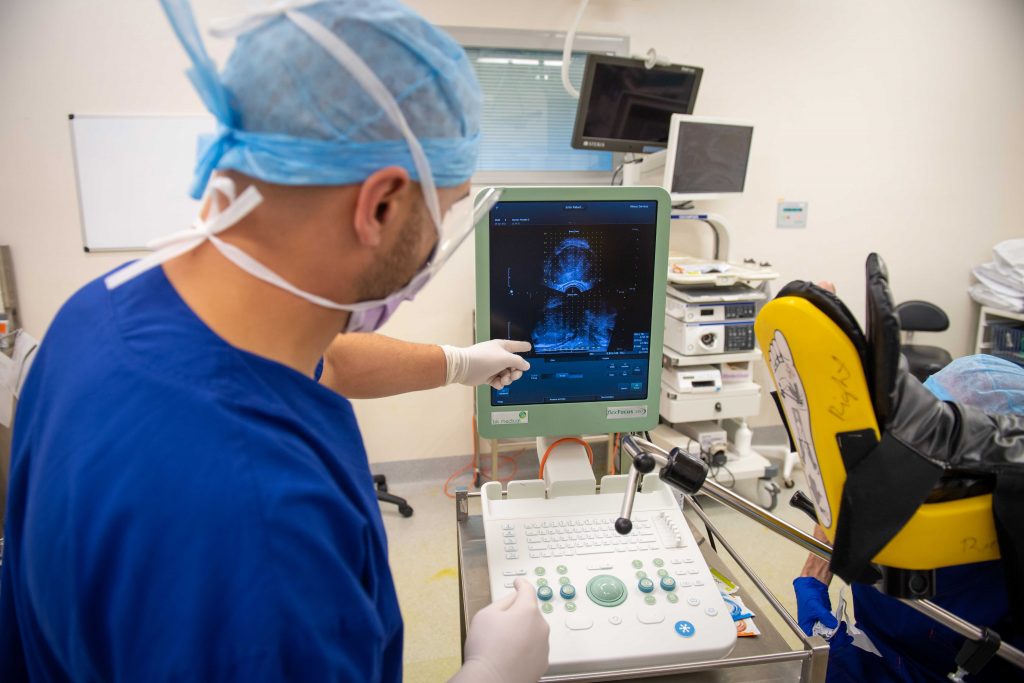If you’ve been diagnosed with benign prostatic hyperplasia (BPH or enlarged prostate), or you’re dealing with urinary symptoms, you probably have some BPH questions on your mind.
If you’ve been diagnosed with benign prostatic hyperplasia (BPH or enlarged prostate), or you’re dealing with urinary symptoms, you probably have some BPH questions on your mind. Benign prostatic hyperplasia is a common condition that affects many men as they age, and having a good understanding of the condition, its causes and treatment options can help you manage the symptoms more effectively.

Common BPH Questions Answered: What is BPH?
Of course, one of the most common BPH questions is, “What is BPH?” BPH, or benign prostatic hyperplasia, is the medical term for having an enlarged prostate. As men grow older, the prostate gland tends to grow. Due to the anatomical location of the prostate gland situated at the opening of the bladder, this enlargement can lead to urinary symptoms. BPH is a non-cancerous enlargement, and it is one of the most common urological conditions in men over the age of 50.
Common BPH Questions: What Causes BPH?
When we discuss BPH questions, many of our patients ask, “What causes BPH?” Whilst there is no single cause of BPH, it is believed to be related to the hormonal changes that take place as a man ages. More specifically, it is thought to be the change in the balance of testosterone and dihydrotestosterone (DHT) levels in a man’s body, that influences the growth of the prostate. Genetics and lifestyle factors including may also play a role in the development of the condition.
Common BPH Questions: How is BPH Diagnosed?
A diagnosis of BPH is typically made through assessment of a combination of patient history, physical exams, and tests. Common diagnostic procedures that may be included when making a diagnosis include a digital rectal exam (DRE), urine tests, and blood tests such as the prostate-specific antigen (PSA) test. In some cases, your urologist may also recommend imaging studies like an ultrasound or MRI to establish the size of the prostate and to exclude cancer.
Common BPH Questions: What Are the Symptoms of BPH?
When discussing BPH questions with patients, the urinary symptoms caused by the condition are often a major concern. Common symptoms of BPH include difficulty starting urination, a weak urine stream, dribbling urine, frequent urination, nocturia (waking frequently overnight to urinate) and the feeling that your bladder is not completely empty. In some cases, BPH can lead to complications including infection, bleeding and urinary retention (inability to urinate).
Common BPH Questions: Will BPH Affect My Daily Life?
Lifestyle impacts are an important concern in BPH questions. “How will BPH affect my daily life?” Men with an enlarged prostate often find that the condition has a considerable impact on their sleep and daily routine, especially when it comes to urination. Frequent trips to the bathroom, especially at night, can be disruptive for a man and his partner, affecting quality of life. Having a sound understanding of how your BPH symptoms affect your day-to-day activities can help you discuss with your doctor to find the best management strategies for your lifestyle and condition.
Common BPH Questions: What Treatment Options Are Available?
The topic of treatment options is an essential part of discussion for anyone dealing with this condition. The treatment options that your urologist offers will vary depending on the severity of your symptoms and their impact on your quality of life. Treatments may include lifestyle changes, medications, minimally invasive procedures, or surgery. Medications like alpha-blockers and 5-alpha-reductase inhibitors can offer symptom relief for mild cases, while effective surgical options including transurethral resection of the prostate (TURP) provides definitive treatment of BPH.
Common BPH Questions: What Should You Ask Your Urologist?
It is always a good idea to write down any BPH questions to bring to your urologist appointment. It is important to discuss the severity of your symptoms and how they are currently impacting your quality of life. You may have questions about the potential side effects of medical or surgical treatments, and you could ask your urologist about any lifestyle changes that could help you to manage your condition.
Bringing in a list of BPH questions to your appointment can help you to make sure that you cover all your concerns.
In Conclusion…
Having your BPH questions answered by your urologist is an important first step toward understanding and managing your condition. By taking the time to learn more about what benign prostatic hyperplasia is, as well as its causes, symptoms, and treatment options, you can feel empowered when it comes to your prostate health.
If you have more BPH questions, you can view the BPH page under the ‘Conditions’ tab on our website, or bring them in with you to your next urologist appointment. You can schedule an appointment by contacting our rooms on 1300 702 811.
